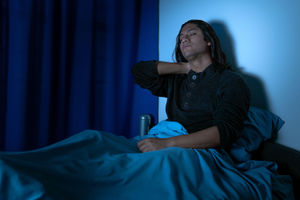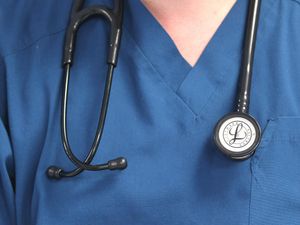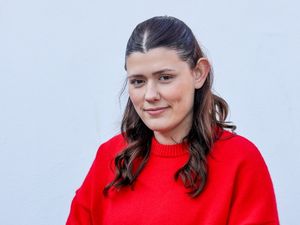Don’t lose sleep over the fear of insomnia
Half of the UK population aren’t getting the optimal seven to eight hours of sleep a night, according to a new study.

Almost a third of the 2,000 adults surveyed said they’d experienced reduced productivity, while 22 per cent said they’d fallen out with friends or partners as a result of being sleep-deprived.
This probably sounds all too familiar to many of us. So, what’s going on?
Are you getting enough sleep?
“If we look at the factors that can disturb sleep, they are endless, whether that be lifestyle factors, bedroom environments, work, or external influences like stress and mental health.
But insomnia tends to be a learned condition, whereby the brain begins to associate night-time with wakefulness,” explains Dr Guy Meadows, co-founder of Sleep School.
“As a result of beginning to worry about not sleeping, the brain begins to become hyper-aroused, and to associate night-time with being in a state of fight or flight. That’s a chronic condition affecting around 10-15 per cent of the population,” he adds. “What’s clear about this research is the vast majority of people are just not getting enough sleep. A quarter are getting five hours or less a night.”
There’s an obvious solution: just go to bed earlier. So, why does that feel so much easier said than done?
“We are in a very challenging time,” Dr Meadows acknowledges. “We saw from the research, 17 per cent are feeling stressed about finances, 15 per cent are worrying about work. There was research from Office for National Statistics as well, which showed more and more people are getting a second job. So unfortunately, if people are working longer, people are generally sleeping less.”
He says changing lifestyles are also having an impact. It is understandable that people feel their only opportunity to relax is late in the evening, but that can impact on sleep patterns.
“I think there is an element of people wanting to have their own bit of time,” says Dr Meadows. “From the research, 19 per cent said they’re staying up late watching films or TV.
“What is absolutely key to me is raising the importance of sleep. Sleep is the single most powerful performance-enhancing, health-providing behaviour known to humankind - and it’s completely free. And we unfortunately do put it very low down on our list of priorities, despite the fact getting that little bit of extra sleep will mean you wake up more refreshed, a little happier, you might be a little bit more productive, not to mention all the health benefits.
“I think there does need to be a bit of a re-evaluation from people, and there’s a certain responsibility from tech as well. All the streaming services, our smartphones, they’re designed to hit on our weaknesses, whether it be a little swirling button when a message comes up that stimulates the release of dopamine in our brain –- and we just love it, we love to keep scrolling.”
So what should we do if we wake during the night? Identifying external factors adding to this is helpful – noise, a bedroom that’s too hot, aches and pains. Stress and anxiety might be a big culprit, if you’re lying in bed with racing thoughts at 3am – and how we respond to night-waking plays a big part.
“One of the first things I always try to get across is that it’s perfectly normal to wake in the night. That helps to allay a lot of anxiety and frustration because people believe, ‘Oh, I’m meant to put my head on the pillow, fall asleep, and not wake up until the morning’. The reality is, we sleep in cycles which are an hour-and-a-half to two hours long, we have these natural breaks,” explains Dr Meadows.
“One of the problems is that when we experience times like now, when we’ve got more to worry about, our thinking mind can hijack those natural breaks, and that can make it harder to fall back to sleep.”
One of the worst things we can do is reach for our phones, as the light exposure activates our physiological waking mode, not to mention the emotional responses if you happen to see a work email or message.
Dr Meadows suggest a mindfulness exercise, instead.
“What we want to do is respond in a way which helps us to stay in a state of quiet, restful wakefulness. Just resting in bed is actually really helpful as you’re still getting growth and repair, and memory consolidation and energy conservation. If you find your mind is super busy, using some sort of acceptance-based mindfulness exercise can be really valuable. Focus your attention on something in the moment, for example, the breath.
“Do a little body scan, noticing: where do I feel the contact of the bed with my body? Scan from the head to the toes, nice and slowly, just going, ‘I can feel the pillow on my cheek, I can feel the mattress on my shoulders, the duvet on my toes’. Doing that helps get out of your head and into your bed!”
Dr Meadows says thoughts will come and go during periods of being awake and that is normal.
“It’s about being able to acknowledge those thoughts, rather than banish or block them. That’s the skill – being able to notice and let go, notice and let go,” he says. “That helps us stay in that state of quiet, restful wakefulness, which is the stepping-stone towards sleeping.”
Founder of the Sleep School, Dr Guy Meadows, is working with Twinings for its 2023 Sleep Census, to provide tips and tricks to tackle poor sleep habits.





